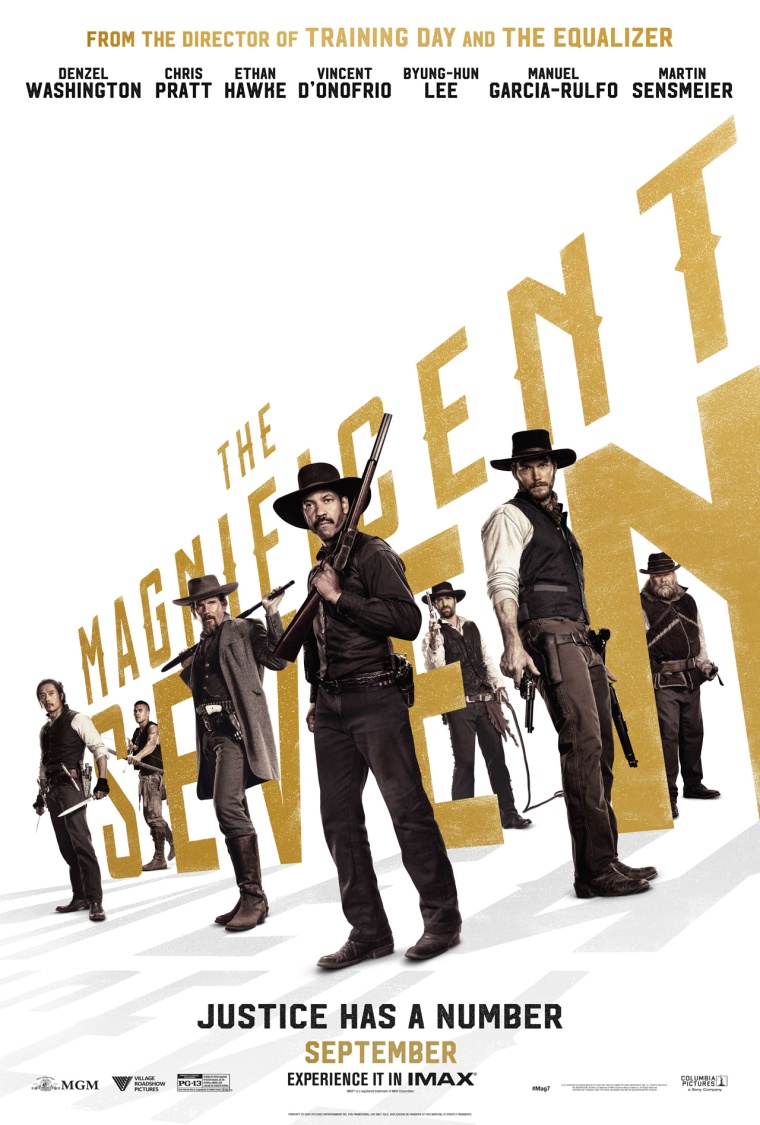
What makes a good remake? There are so many these days, and so many of them are unmemorable. That angers people because they ultimately see a remake as nothing more than a cash grab; a lowest common denominator with a memorable title that’s easier to market for the big studio engine. In most cases, that is the case, and it makes audiences judge the next remake coming down the pipe before it’s on the screen, and I don’t blame them. Why watch the remake when I have the far superior original on my hands? Why go see something unoriginal at theater prices, when there’s other, less lazy, options? But that doesn’t mean a remake is an automatic death sentence, it just means it has a harder hill to climb in order to be a success.
I always thought that in order to say a remake is successful is to judge it on two fronts:
Is it necessary?
Does it add something new?
Some films, even the best ones, do not age well. They lose something overtime that robs an audience of what made them great in the first place, and usually those audiences are new ones. That means a new film can act as a polish to the old, and fix it for the newer times. But it is also important that it brings new ideas to the table, ideas not possible when the original was made, otherwise what’s the point? That later option can be expanded in the form of a genre switch. Take a look at the work of William Shakespeare: Romeo & Juliet becomes West Side Story; Hamlet inspires The Lion King; King Lear becomes Akira Kurosawa’s Ran. And Akira Kurosawa’s Seven Samurai becomes The Magnificent Seven.
But those last few examples are not what we’re dealing with here when we compare the 1960 Magnificent Seven to Antoine Fuqua’s update, because his new film doesn’t really add anything new, other than a more diverse cast, and more violent action. In fact, it ends up being unnecessary to someone like me that now, having seen both films, prefers the 1960 version. But I’m not everyone, so while it isn’t necessary to me, I acknowledge that Fuqua’s version will be something new for some audiences. And because of that, I think it sneaks around the whole remake thing unscathed. A better reason is that despite my issues…the new film is a lot of fun. Is a great movie? No, it’s a pretty straight forward affair, elevated by expertly handled action scenes and a cast that is able to distinguish themselves enough to care for.
A prologue introduces us to the town of Rose Creek that has become under the deadly control of industrialist Bartholomew Bogue (Peter Sarsgaard), who shows off his power and ruthlessness before the opening credits roll. This leads the desperate townspeople, led by newly widowed Emma Cullen (Haley Bennett), to employ protection from seven outlaws, that consist of bounty hunters, gamblers, and hired guns. The rag tag group is recruited by former Union member Sam Chisolm (Denzel Washington), and alcoholic womanizer, Josh Farraday (Chris Pratt). Shortly joining the crew is former confederate soldier, Goodnight Robicheaux (Ethan Hawke), fur-trapper, Jack Horne (Vincent D’Onofrio), Korean knife-wielder, Billy Rocks (Byung-Hun Lee), wanted Mexican outlaw, Vasquez (Manuel Garcia-Rulfo), and loner Cherokee, Red Harvest (Martin Sensmeier). The film doesn’t spend much time showing them bond as a group because once they unite, they set their sights on doing their duty, and doing it quickly. And as they prepare the town for the violent showdown that they know is coming, these seven mercenaries find themselves fighting for more than money, which again, the film doesn’t spend it’s time on finding the reasons for each man to do so…other than paying for their sins, or being able to die a better death than most.
Washington commands the screen with little more than his whispers, but his presences is as loud as the army he faces down. It was nice to see him reunite with his Training Day costar, Ethan Hawke, who takes the little given to him and makes the best out of it. D’Onofrio either annoys me, or I enjoy him; I enjoyed him here. Pratt seems a little too Pratt at times, but he’s having too much fun to not be infectious. Haley Bennett, as the widower, is going to be a star soon, and she shows exactly why here, standing toe to toe with the some acting heavyweights. Sarsgaard is fine as the villain, though not very memorable, and too cartoonish at times. Everyone else fills their roles nicely.
Fuqua makes mostly pedestrian choices with his camera, but he does love a good sunset, and I loved looked at them. He uses the open landscapes and firelight as much as he can, and uses them well. His most impressive feat is the way he handles the film’s final showdown. It’s as well done an action sequence as any I’ve seen this year, including the airport fight in Civil War. It was also lovely to hear the score by Simon Franglen and the late James Horner. I was able to recognize Horner’s familiar sounds, and appreciated every second they’re used.
If you’re unable to get past that this is a remake of the 1960 film, then I would say to not trouble yourself with something you’ve already given up on. But if this is a new experience for you, or if you just want to enjoy a western with a cast to get behind, then saddle up and enjoy it. I did.
Grade: B

One thought on “The Magnificent Seven”